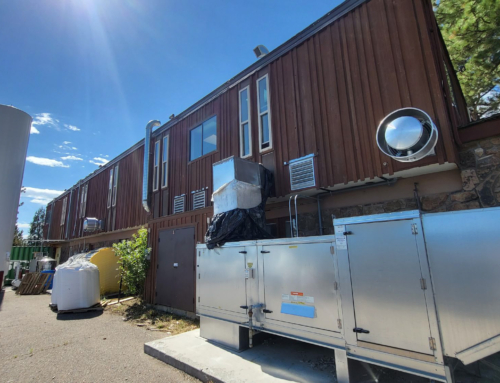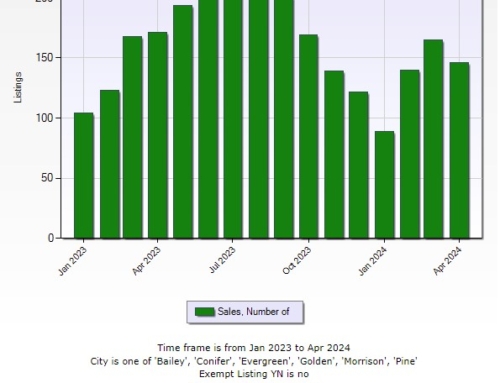Comparing National Banks vs. Local Mortgage Brokers: Which is the Better Option to Get a Mortgage Loan?

National Bank Or Local Mortgage Broker
When it comes to making one of the biggest purchases of your life, getting a mortgage loan is one of the most important decisions you will ever make. But deciding which entity to go with can be overwhelming, with a variety of options available. Whether you choose a national bank or a local mortgage broker, there are pros and cons to both. It’s important to evaluate the differences between a national bank and a local mortgage broker to make the best decision for your specific needs. This article will compare national banks vs. local mortgage brokers to help you decide which is the better option for you when it comes to getting a mortgage loan. When it comes to getting a mortgage loan, most people have two primary options: national banks or local mortgage brokers. Both options have their advantages and disadvantages, and it’s important to consider them all before making a decision. National banks, with their expansive network of resources and wide reach, offer borrowers a variety of options and competitive rates. On the other hand, local mortgage brokers are usually knowledgeable about the local market and can provide personalized service. In this article, we’ll compare the two to help you determine which is the better option for you to get a mortgage loan.
What is a National Bank?
A national bank is a financial institution that has been chartered by the federal government. National banks operate similarly to local banks, with a network of branches and a focus on person-to-person lending. However, national banks are distinguished by their ownership. Unlike local banks, which are privately owned, national banks are owned by the federal government. National banks offer many advantages over local mortgage brokers. Because they are a federally chartered institution, they can provide access to a wide range of resources and products. National banks are often able to offer competitive rates and terms, as well as have the option to refinance.
What is a Local Mortgage Broker?
A mortgage broker is an entity that helps customers find and apply for a mortgage loan. They do not offer financing themselves, but instead help customers go through the application process for a loan, often through a variety of different lenders. Local mortgage brokers offer personalized service and local knowledge and often provide clients with a wide variety of options. Local mortgage brokers are regulated by The Financial Institutions and Facilities Act and must be licensed.
Advantages of National Banks
– Wide network of resources – National banks often offer access to a wide range of products and services. Whether you’re looking to get a mortgage loan, refinance an existing loan, or invest in a financial product, national banks often have the resources to help you. – Competitive rates – National banks often have access to competitive rates. Because they have a large network of lenders and product offerings, they are often able to find the best rates for customers. – Access to different mortgage types – Not all mortgage brokers offer all types of loans. If you have a specific type of loan or type of product in mind, it can be a good idea to go with a national bank. They often have access to a variety of different mortgage products, including VA loans, FHA loans, and many other options. – Ability to refinance – A national bank can often help you refinance an existing loan, which can be an attractive option for many borrowers.
Advantages of Local Mortgage Brokers
– Local knowledge and personalized service – Local mortgage brokers often know the local market, and can use that knowledge to help you find the best loan for your situation. – Wide variety of options – Like national banks, local mortgage brokers offer a wide variety of options. Whether you’re looking to get a fixed-rate or adjustable-rate loan, refinance or buy a new home, a local mortgage broker can help you find the right product for your specific needs. – Ability to shop around – Local mortgage brokers have access to a variety of lenders and product offerings. They can shop around and help you find the best option for your specific situation. – Wide variety of loan types – Local mortgage brokers often offer a wider variety of loan types than national banks. For example, a local mortgage broker may have access to a variety of different FHA loans.
Disadvantages of National Banks
– Higher fees – Because national banks often have to compete with local lenders, they often charge higher origination fees and other types of fees. This is because they have higher operating costs and often have to pay a higher interest rate. – Could be turned down for a loan – Because national banks often use a network of different loan officers and lenders, there’s a chance that you could be turned down for a loan. While a local mortgage broker can help you shop around for the best option for your individual situation, a national bank could potentially turn you down for a loan.
Disadvantages of Local Mortgage Brokers
– Higher interest rates – Typically, you will end up paying a higher interest rate if you go with a local mortgage broker. This is because they often charge you a fee, which they pass on to you in the form of a higher rate. – Could be turned down for a loan – Like national banks, a local mortgage broker could decide not to issue you a loan for a variety of reasons. They are not required to give you a reason for turning you down, but most will still try to help you find the best option for your individual situation.
Comparing Costs
– Origination fees – One of the biggest factors to consider when comparing costs is the origination fee. This is a percentage of the loan amount that is charged at the beginning of the loan. If you go with a national bank, they are more likely to charge a higher origination fee, while a local mortgage broker will charge a lower fee. – Points – Another factor to consider is points. Points are prepaid interest, and they are another way that a lender can make money off of your loan. They often charge a lower rate if you pay points, but it’s important to be aware of the long-term costs. – Interest rates – The interest rate on your loan is another major consideration when comparing costs. If you go with a local mortgage broker, you likely won’t be able to get the most competitive rates. Instead, you will likely get a rate similar to what a national bank would offer you.
Factors to Consider Before Making a Decision
– Competitive rates – It’s important to consider the overall costs of each loan, but you should also look at the actual interest rate. With lower rates, you will pay less over the lifetime of the loan. – Term length – The term length of your loan is another major factor to consider. A shorter term will mean a lower overall amount, but it also means you will pay more in interest over time. – Balance of loan – You should also consider the balance of your loan, as well as the payment amount you will be expected to pay each month. The higher your payment, the more time it will take to pay off the loan.
Comparing Fees and Interest Rates
– Origination fees – As we discussed above, the origination fee is a percentage of the loan amount that is charged at the beginning of the loan. It is another way that lenders make money off of their loans. You can use this to your advantage and choose whichever loan option has the lowest origination fee. – Points – When you go with a national bank, you can often get a lower rate if you pay points. Points are prepaid interest, which means that you pay a lump sum at the beginning of your loan. This lowers the interest rate, which means you pay less each month and the loan is paid off faster. – Interest rates – It’s important to look at the overall interest rate for each loan. You can make a side-by-side comparison to find the best option for your specific needs.
Other Factors to Consider
– Reputation – While many national banks have a wide reach and offer excellent products, you also need to consider their reputation. If a national bank offers you a loan, they are responsible for collecting on that loan if you don’t pay it. They have to make sure they only work with reputable customers and have trustworthy policies. – Experience – You also need to consider the experience of the lender or broker you choose to work with. A local mortgage broker may have less access to different loan types, but they are often well-versed in the local market and can help you find the best option for your specific needs. National

Orson Hill Realty is a real estate company in Evergreen, Colorado that serves the Denver Foothills and the Denver Metro. Orson Hill Realty can assist in any size real estate transaction from small land listings to luxury listing agents and buyer brokers.
Orson Hill Realty has experienced listings agents and buyer agents. Our Realtors know how use high tech digital marketing mixed with old school marketing to sell your home faster and for more money.
This technology also helps buyers find their home faster. That way a buyer never misses the perfect home again. Any real estate agent in this day and age that doesn’t leverage technology is not doing their clients any favors. All Orson Hill Realty real estate agents are Realtors.
Orson Hill Realty is a full-service Colorado-based real estate company that offers professional real estate agents and brokers to assist you in your buying or selling process. Our agents are well-versed in the local community and have a strong online presence, making them highly effective in their field. For buyers, we offer online listing alerts and a user-friendly portal to facilitate an efficient home search, with access to homes not yet on the market, and for sellers, we advertise on a wide range of listing websites to ensure high visibility for your listing.
As realtors, we are dedicated to upholding a higher level of ethics and experience in our business, and we are deeply invested in the community, with active participation in various local events and activities. Our real estate agents possess a wealth of knowledge on the local area and know how to negotiate the best prices for your needs. We offer excellent services for luxury homes and horse properties, although we handle any size real estate transaction with utmost professionalism.
Our company places a strong emphasis on technology, recognizing the importance of an online presence to meet the demands of our fast-paced industry. With multiple high traffic websites and digital marketing strategies, we ensure that your property is marketed throughout the internet to reach a wider audience. We are dedicated to providing luxury services to all our clients, regardless of the price point.
Orson Hill Realty
Ask me about Southwest Florida real estate









Leave A Comment
You must be logged in to post a comment.